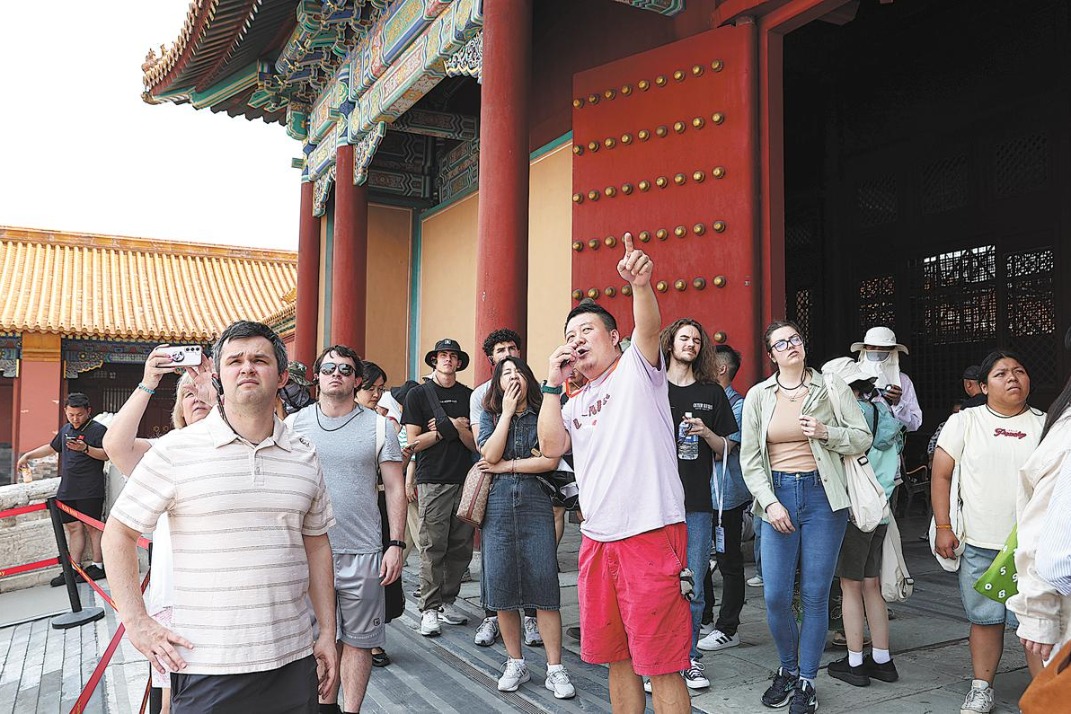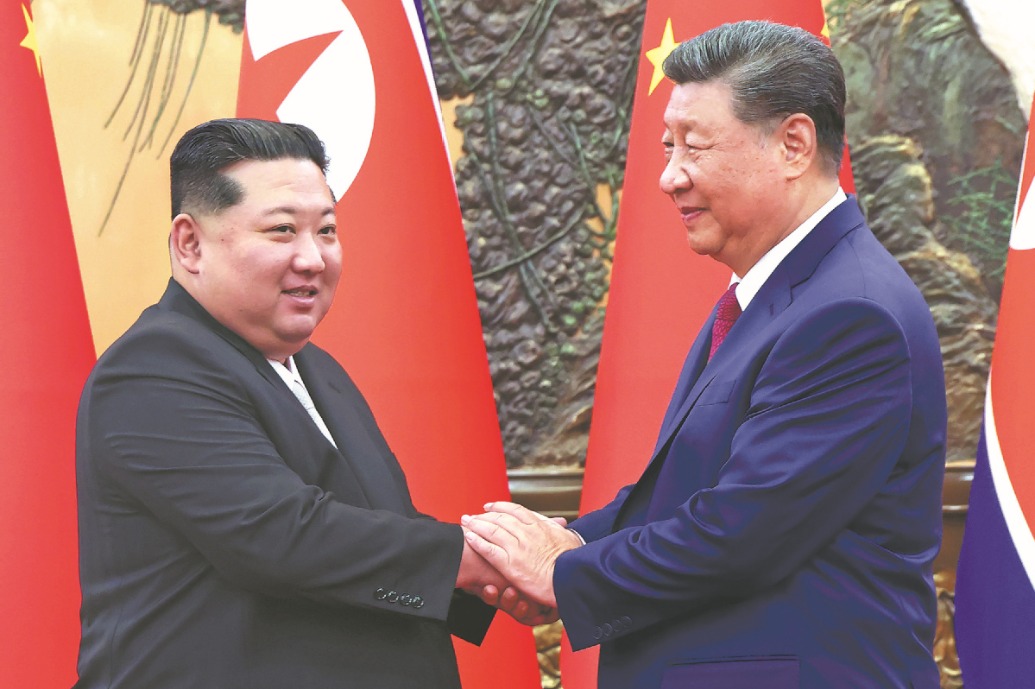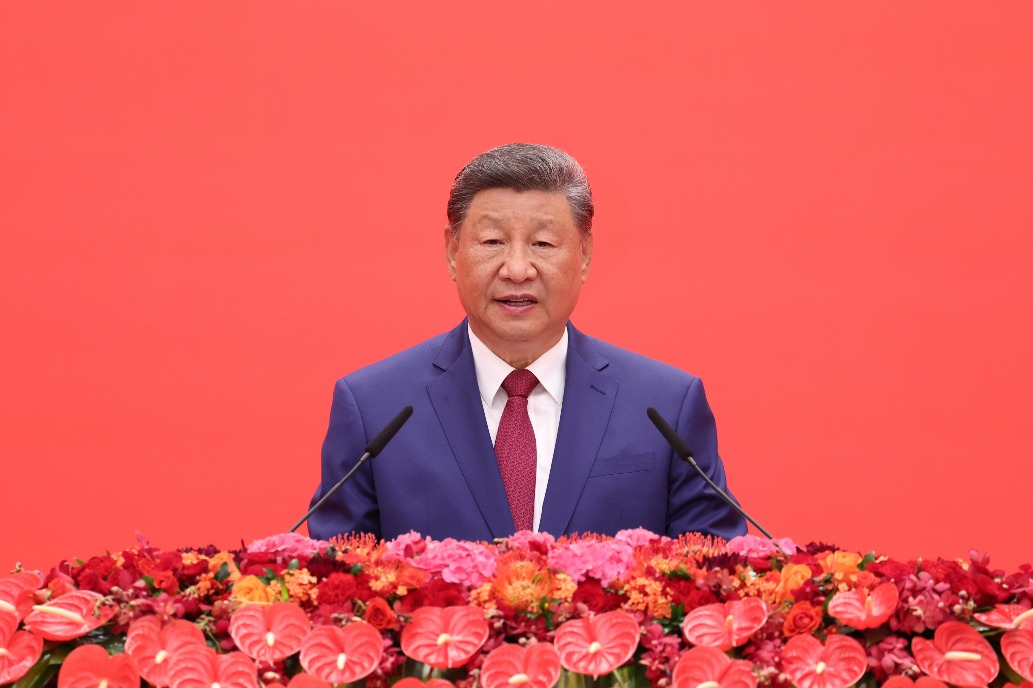China leading the blockchain revolution

Its product-verification research and development is good news for consumers worldwide
Shoppers in China can now rest assured and buy goods online in the comforting knowledge that their purchases are authentic products. Alibaba and other tech giants, such as JD.com, have enabled shoppers to quickly and conveniently check purchases by scanning a QR code, verifying the item's supply chain.
This is made possible with the introduction of blockchain technology, an exciting new technology brought to mainstream attention with the meteoric rise of bitcoin last autumn. But what is blockchain technology, and how will it help a growing number of Chinese e-consumers?
Blockchain is not a new invention. Rather, it is a combination of tried and tested technologies applied with the end goal of achieving impartial and decentralized independent security for transactions. It relies on a distributed ledger, meaning that information is decentralized on multiple servers. Using cryptography, blockchain offers definitive proof of transactions that have taken place in the past. Through the use of game theory, the system is also incentivized to be stable. This new field has been dubbed "crypto-economics" by those who hail it as an impending revolution for the financial world.
This means that, on a practical level, an internet user can now for the first time make a recorded transfer to another user, in such a way that the transaction is guaranteed to be safe, secure and fully traceable. The legitimacy of the transfer cannot be challenged and, perhaps most notably, there is no need for a centralized bank or authority to confirm the security of the transfer.
Blockchain technology can be applied to any product for sale online where there is the need for a trustworthy system of record. This is big news for Chinese e-shoppers. It means shoppers can now independently verify their transactions faster without wasting time through a separate regulatory body.
Alibaba has said the goal of its blockchain initiative, announced in March, is to use the blockchain database to achieve end-to-end supply chain traceability and transparency, thereby enhancing consumer confidence and building a trusted environment for cross-border trade.
Alibaba is first piloting its operation for food products imported from Australia and New Zealand. Chinese consumers will be the first in the world to be able to scan a QR code to see the blockchain's verified database, indicating a genuine product. This has been heralded by many as the first real step toward countering the sale of fake foods such as counterfeit soy sauce, rice and eggs, which have led to a number of deaths worldwide since 2012.
The purge of fake products by Alibaba does not stop at just food. Vendors on Taobao and Tmall, both subsidiaries of Alibaba, have previously been found selling fake goods to shoppers, such as knockoff designer clothes, handbags and bootleg computer technology and DVDs. In the future of blockchain technology, no counterfeit product will be safe in the nation.
China's lucrative market size and developed e-commerce technology means it is no surprise that blockchain technology is making waves in its competitive economy, with other companies taking notice.
JD.com has also announced a blockchain initiative that likewise focuses on food and medicine products. The latter will come to be extremely important in the future, as the sheer number of counterfeit medicines sold internationally from unlicensed factories is on the increase and jeopardizes vulnerable people with dangerous impurities.
China is currently the pioneer in applying blockchain technology in this manner. The big three tech giants - Baidu, Alibaba and Tencent, known collectively as BAT - are all flirting with new research into blockchain.
Alibaba in particular has filed for the most blockchain patents out of any company in China, or indeed the world, due to its affiliation with e-payments company Ant Financial. According to a report by IncoPat, Alibaba owns more than 10 percent of the world's total blockchain technology patents.
Companies worldwide are taking note of the progress made in the East, with international corporate investment into blockchain technologies expected to reach $2.1 billion as the technology becomes more widely adopted.
As blockchain database systems uncover more fraudulent activities, it is only a matter of time before more industries apply ledger-based verification systems to their products. It is expected that this expenditure will shoot up to a whopping $9.7 billion in 2021, according to a report by IDC. Counterfeit products cost the global food industry more than $40 billion each year, so China's research into and development of this new and exciting technology will be good news for consumers across the world in the years to come.
The author is a London-based columnist.
Contact the writer at editor@mail.chinadailyuk.com.


































